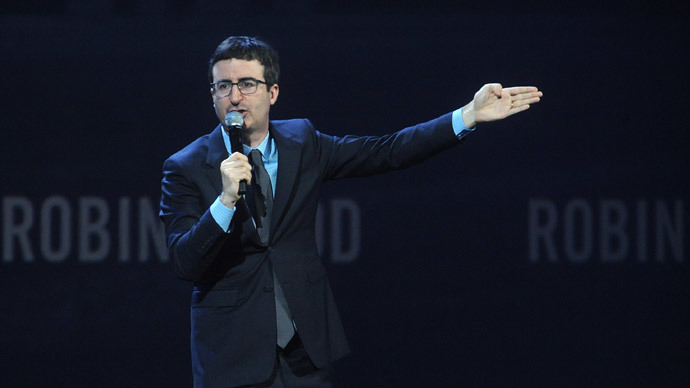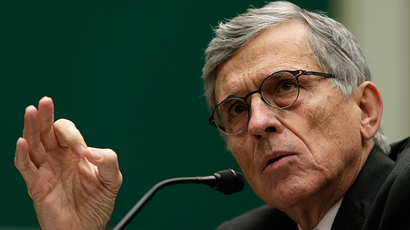John Oliver crashes FCC site after calling to defend net neutrality

A pro-net neutrality rant at the end of a recent episode of HBO’s news-comedy Last Week Tonight helped to cripple the website of the Federal Communications Commission this week.
Comedian and television host John Oliver is now being blamed for sending viewers of his new show en masse to the FCC’s official website, in turn causing FCC.gov to collapse under the weight of a tremendous amount of internet traffic.
Oliver, who last year filled in for Jon Stewart as host of The Daily Show, concluded Sunday’s episode of Last Week Tonight with a comedic monologue concerning the FCC and a proposal currently being considered by the regulating agency that, if approved, could pave the way for broadband internet providers to create a two-tier system that would effectively erode the concept of net neutrality as it exists today.
“Net neutrality is actually hugely important. Essentially it means that all data has to be treated equally, no matter who created it. It’s why the internet is a weirdly level playing field,” Oliver explained. “Ending net neutrality would allow big companies to buy their way into the fast lane, leaving everyone else in the slow lane.”
As RT reported previously, the FCC agreed to consider the proposal authored by chairman and former cable lobbyist Tom Wheeler last month, but at the same time opened up his draft for comments. After spending more than 10 minutes of pleading with his television audience to consider the implications of what approving that proposal could mean for the web during Sunday’s broadcast, Oliver urged his viewers to log-on to FCC.gov and leave comments condemning Wheeler’s draft.
“That’s right,” Oliver said. “The FCC are literally inviting internet comments at this address, and at this point, and I can’t believe I’m about to do this, I would like to address the internet commenters out there directly.”
“Good evening, monsters,” he jokingly began an open statement to anonymous comment makers. “This may be the moment you spent your whole lives training for.”
“For once in your life we need you to channel that anger, that badly spelled vile that you normally reserve for unforgivable attacks on actresses you seem to think have put on weight, or politics you disagree with, or photos of your ex girlfriend getting on with her life, or non-white actors being cast as fictional characters,” he said. “We need you to get out there and for once in your lives focus your indiscriminate rage in a useful direction.”
Oliver then instructed his audience to “turn on caps lock and fly, my pretties.” Indeed, that message was heeded by more than just a few fans — on Monday, the FCC took to Twitter to say that an influx of commentary had in fact crippled the site.
We’ve been experiencing technical difficulties with our comment system due to heavy traffic. We’re working to resolve these issues quickly.
— The FCC (@FCC) June 2, 2014
“We’ve been experiencing technical difficulties with our comment system due to heavy traffic. We’re working to resolve these issues quickly,” the FCC tweeted on Monday.
“We’re still experiencing technical difficulties with our comment system,” reads a follow-up Twitter post published later that day. “Thanks for your patience as we work to resolve the issues.”
As of Tuesday afternoon, the “Protecting and Promoting the Open Internet” proposal on FCC.gov had acquired comments from 47,061 critics. By comparison, the next most-widely-commented draft on the FCC’s site garnered remarks from less than 2,000 people. All but three others have received under 100 comments apiece. Oliver's video, meanwhile, has been viewer more than 800,000 times in only two days.













